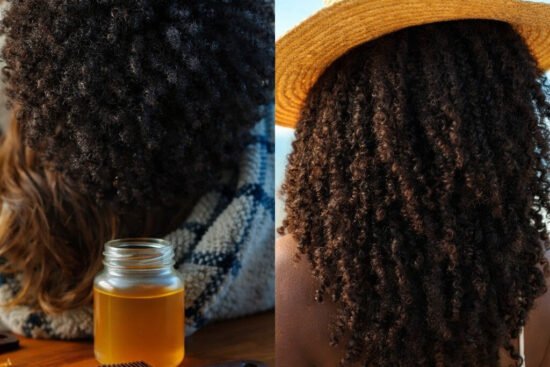
Your skin and hair are integral to your unique identity, reflecting both beauty and resilience. However, environmental stressors such as pollution, climate variations, and daily habits can significantly impact their health. Understanding how these factors affect African American skin and hair is crucial for developing effective care routines. In this post, we’ll explore the effects of these stressors and provide practical tips to maintain the beauty and integrity of your skin and hair amidst challenging conditions.
Understanding Environmental Stressors
Environmental stressors are external factors that can negatively influence your skin and hair health. These include:
-
Pollution: Exposure to pollutants can lead to oxidative stress, causing premature aging and skin irritation.
-
UV Radiation: Harmful ultraviolet rays can damage the skin, leading to hyperpigmentation and increased cancer risk.
-
Climate Factors: Humidity, temperature fluctuations, and harsh weather conditions can strip moisture from your skin and hair, leading to dryness and brittleness.
By recognizing these stressors, you can take proactive steps to protect and nurture your skin and hair.
Unique Characteristics of African American Skin and Hair
African American skin and hair possess distinct features:
-
Skin: Higher melanin content offers some natural UV protection but can also lead to hyperpigmentation when exposed to stressors.
-
Hair: Typically more textured, with variations from tight curls to looser waves, making it more prone to dryness and breakage.
These characteristics influence how environmental factors interact with your skin and hair, necessitating tailored care routines.
Impact of Environmental Stressors on Skin Health
Environmental stressors can compromise your skin’s barrier function, leading to:
-
Increased Sensitivity: Resulting in redness, swelling, and discomfort.
-
Inflammation: Triggered by pollutants and UV exposure, causing oxidative stress and accelerating aging.
-
Hyperpigmentation: Excessive melanin production in response to stressors, leading to uneven skin tone.
To combat these effects, consider incorporating antioxidant-rich products into your skincare routine to neutralize free radicals and strengthen your skin’s defense mechanisms.
Impact of Environmental Stressors on Hair Health
Your hair can also suffer from environmental challenges:
-
Dryness and Brittleness: Pollution and harsh weather can strip natural oils, leading to fragile hair.
-
Frizz and Breakage: Humidity causes hair to swell, while temperature extremes weaken hair structure.
Protective hairstyles, regular deep conditioning, and minimizing heat styling can help maintain hair health.
Strategies for Protection and Care
Implementing effective strategies can enhance your skin and hair’s resilience against environmental stressors:
Skincare Regimens for Environmental Protection
-
Cleansing: Use gentle cleansers to remove pollutants without stripping natural oils.
-
Moisturizing: Apply hydrating products to maintain skin barrier function.
-
Sun Protection: Use broad-spectrum SPF to guard against UV damage.
Recommended Product:
Haircare Practices to Mitigate Damage
-
Deep Conditioning: Regular treatments to restore moisture and strengthen hair.
-
Protective Styles: Hairstyles that minimize exposure to environmental elements.
-
Natural Oils: Use oils like argan or coconut to seal in moisture and protect hair strands.
Recommended Products:
Embracing Cultural Practices in Care Routines
Blending traditional practices with modern approaches can yield optimal results. Incorporate natural oils and herbs used historically within the African American community, while embracing contemporary products designed to address current environmental challenges.
Conclusion
Understanding the effects of environmental stressors on your skin and hair is essential for maintaining their health and beauty. By recognizing these challenges and implementing tailored care routines, you can protect and enhance your natural radiance amidst environmental adversities.











